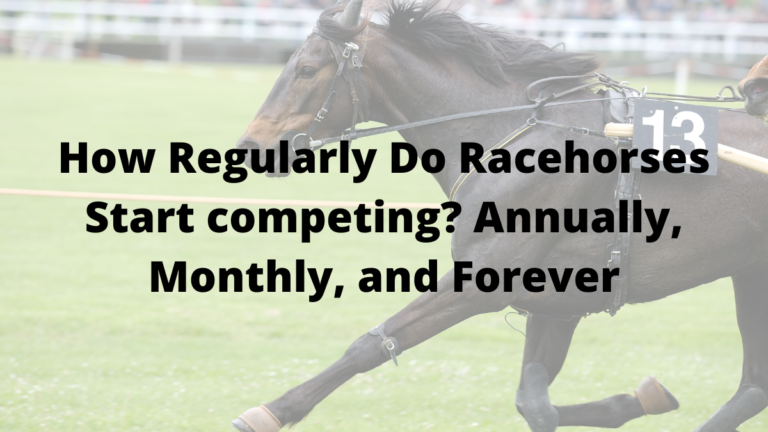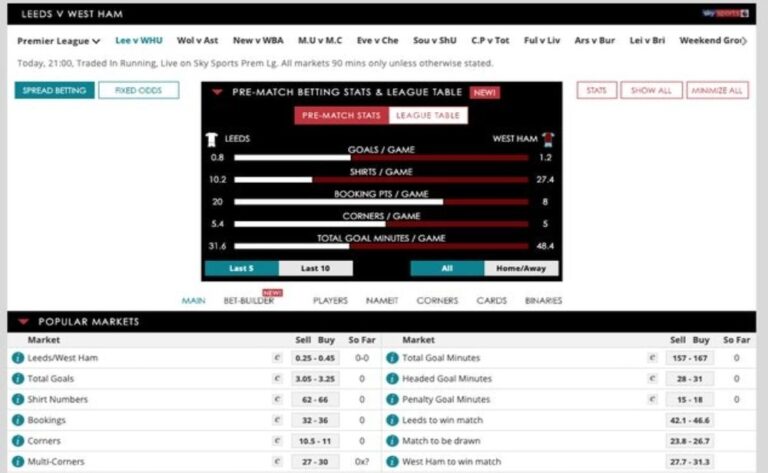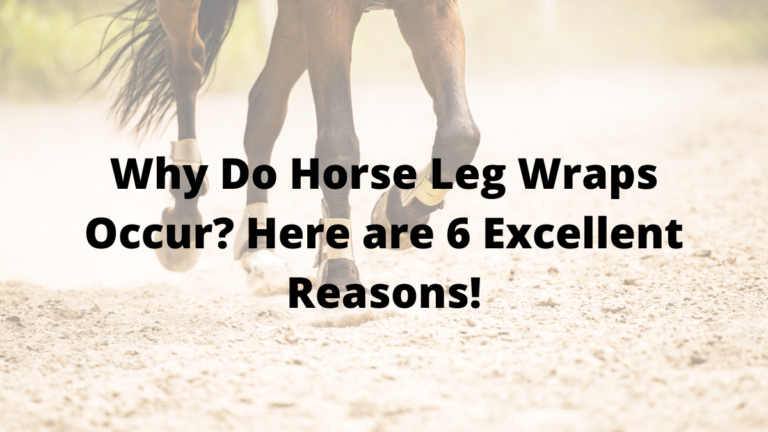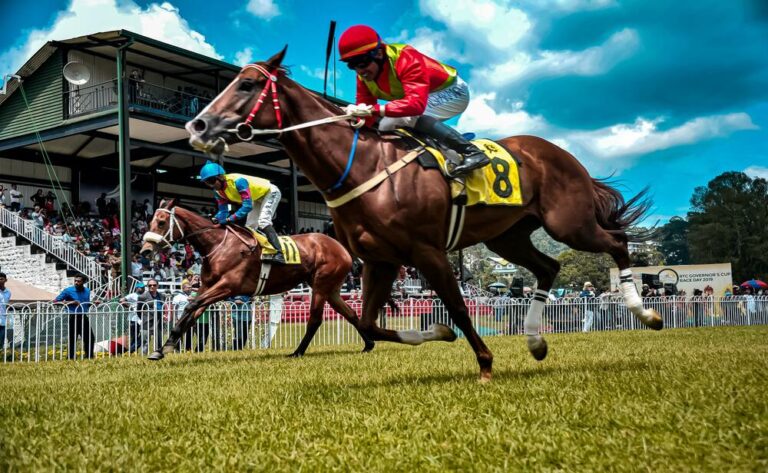Rating the 10 Craziest wins in the History of Horse Racing

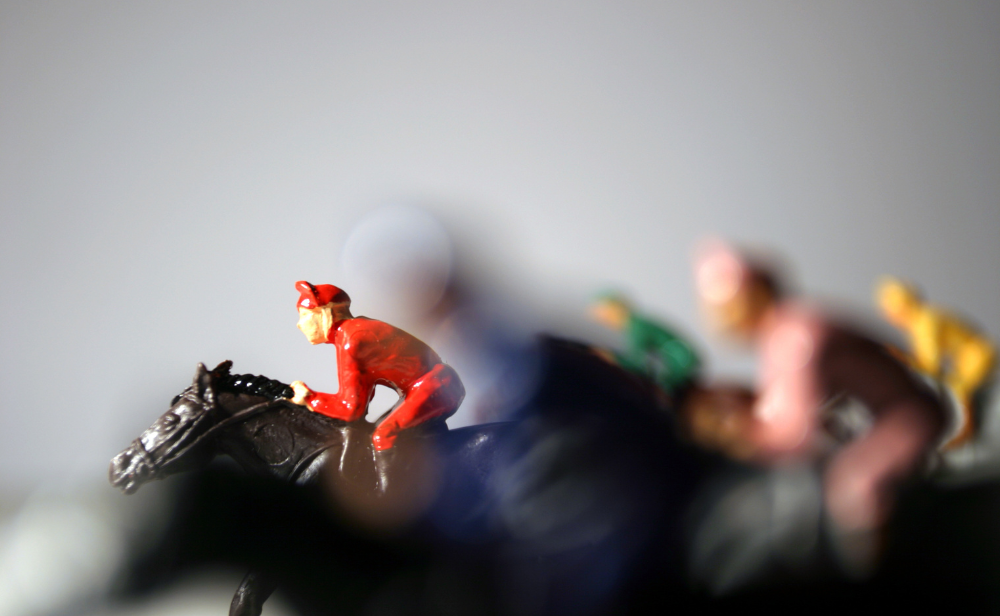
A good upset is the best way to brighten up a day at the races. The significant contests, like the Kentucky Derby, Breeders’ Cup Classic, and Belmont Stakes, are determined by the best horses in the world, which is a concern.
Probably.
A race between a few evenly matched horses lacks the excitement of seeing a challenger overcome great odds. However, the unexpected win—nobody predicted—draws many of us back to the top horse racing betting apps.
Some of these horse racing victories are incredibly bizarre, while others, like the one I gave the number 10 spot on the scale, are a little more subdued. If you came here seeking some of the most unexpected victories in horse racing history, I’ve got you covered.
Below, I rank the 10 craziest.
They are defeating the greatest.
The Whitney Handicap, which had recently been elevated to Grade II in 1973, is now known as the Whitney Stakes and is a Grade I stakes event. It was a fantastic race to give Secretariat, who recently won the Kentucky Derby, another opportunity to display his incredible sprinting prowess.
For the first time as a handicap race over 1-1/4 miles in 1928, the Whitney has been run over nine furlongs (1-1/8 miles) of dirt track since 1955. Onion, a spirited three-year-old chestnut gelding who, in any other situation, likely would have been viewed as the betting favorite, was one of Secretariat’s rivals in the 1973 handicap race.
And as things stood, Onion’s odds were 9/2 even against Secretariat, the horse who won the Kentucky Derby and set the record for that race (1:59.4). Onion was neither a favorite nor a long shot in this situation.
Onion gained the lead of this small group of five at the half, leaving Secretariat to contend with the losers. Since Secretariat was noted for running faster as the race progressed, it was no surprise that he was vying for second place when they reached the last turn. Onion and Secretariat were briefly neck and neck, but Onion gained the upper hand in the final yards and finished a full length ahead of Secretariat.
Happy to be here—and a little surprised, too.
Despite having little to boast about, the three-year-old colt Animal Kingdom qualified for the 2011 Kentucky Derby. He managed to win the Spiral Stakes (now known as the Jeff Ruby Steaks), a Grade III dirt track race, after breaking his maiden on his second attempt and placing second in an allowance race.
Animal Kingdom entered the starting gate at Churchill Downs at 21-1, but it was just enough to get him a ticket to the Kentucky Derby. It would be an understatement to say that the oddsmakers were unimpressed and that this ranks among the most unexpected horse racing victories ever.
Since most of his previous runs had been on turf or artificial surfaces, this would be one of Animal Kingdom’s first competitions on a dirt track. Animal Kingdom was in the last position in the 11-horse field at the break, and he held that position until the second turn.
Animal Kingdom was roping the other horses as the runners neared the second turn as he passed one horse after another. Animal Kingdom had assumed the lead when the horses emerged from the second round.
After a brief struggle, Animal Kingdom outlasted Decisive Moment by two lengths in the Spiral Stakes.
A Rocket to Fame
Sheikh Albadou, a British import, was not anticipated to place in the money in the 1991 Breeders’ Cup Sprint.
No big deal. He had made his debut at Newmarket Racecourse and placed eighth out of a field of eleven. On his second attempt, he was successful in 1992 at Pontefract Racecourse. Later, he had only modest success in a few longer runs, faring better in shorter sprints.
Gulfstream Park in Florida is far from merry old, but that was in England. Sheikh Albadou was exceedingly pessimistic by a 26-1 margin.
Sheikh Albadou was eighth in the field of ten horses shortly after the break. Until the final round, he was an also-ran. Then, he employed a centrifugal force-like maneuver to slingshot around the outside and challenged a money position. He exceeded those expectations in the last furlong and established a strong lead, crossing the finish line with a three-length advantage.
Make the most of your victories if you only get one Coventry
The setting was Pimlico Race Course in Baltimore, Maryland, and the year was 1925. It’s the Preakness Stakes, the second leg of the Triple Crown of thoroughbred horse racing. The Preakness will be run for the first time at its current distance of 9-1/2 furlongs during this race (earlier Preakness races were run at various slightly shorter distances).
Coventry, a three-year-old horse who had never won a race, is one of the competitors. Coventry participated in only five races throughout his brief career. And only succeeded in winning one.
He chose the 1925 Preakness Stakes, which was a terrible moment to get that elusive triumph.
But at the end of the run, he realized he had ambition. He overcame horse after horse, eventually taking the lead from the heavily-favored Backbone.
He would only make one trip to the winner’s circle, so one can only hope he enjoyed it. After pulling a tendon during the Preakness, Coventry broke down in his next race—the Withers Stakes—and was retired to stud.
Very Near, But No Cigar
Everybody anticipated that the thoroughbred who had won his previous 16 races—the six-year-old Cigar—would win the prize at the annual Pacific Classic Stakes (Grade I) in 1996.
For the Pacific Classic, a small field of six horses lined up at the starting gate, five of which had long odds. Naturally, Cigar was the 1-9 favorite. He would win, and a two-dollar wager would return a tasty $2.20. The five-year-old Dare And Go, who the oddsmakers pegged at 39-1, was the least likely to prevail.
And with Cigar leading the six-horse field at the break, it appeared like Cigar fans would be putting that twenty cents in the bank. Dramatic Gold and Siphon, two other frontrunners with whom Cigar sparred for much of the race, managed to exhaust themselves in the last furlongs, which allowed Dare And Go to sneak past the frontrunners and cross the finish line much ahead of them.
Cigar’s winning streak ended, but he still put a tremendous effort by placing second in this event.
You Lose If You Sleep
Volponi ought to have started the 2002 Breeders’ Cup Classic with better odds than the longshot 44-1 he broke with, even in a twelve-horse field that featured 2002 Kentucky Derby and Preakness Stakes victor War Emblem.
Yes, those odds of 44-1 had to hurt. Nevertheless, neither Volponi nor his rider, Jose Santos, seemed to be phased by the longshot doubts as the pair sat in the back of the bus as the race progressed.
Meanwhile, War Emblem and Medaglia d’Oro competed for the top spot.
Volponi didn’t make his move until the last bend when he made a desperate inside move to take the lead, just as the other frontrunners were rounding the corner and turning for home.
Volponi was six lengths in front of Medaglia d’Oro when he crossed the finish line. War Emblem, too? He came in ninth place overall.
Check out all that Beautiful Mud!
Mine That Bird was only anticipated to pick up his participation award on the way home from the 2009 Kentucky Derby because of his 50-1 odds.
The 19-horse field had fierce competition, and the track was “sloppy” because of the previous night’s heavy rain.
Although Mine That Bird had some early success in listed stakes runs, his performance was, may we say, less than outstanding as the big KD approached.
Mine That Bird quickly claimed last place and held to it like it was a birthright as the 19 Kentucky Derby contenders rushed forward as the gates crashed.
Surprisingly, another 50-1 longshot, Join in the Dance, had been leading since the break and had held that position until Mine That Bird made his play on the final turn.
Mine That Bid never won any of the nine races he entered after the KD victory. However, he finished second at the Preakness and third in the Belmont Stakes, maybe if they had diluted the song a little.
The Longshots’ Day
It’s an honor just to be nominated, as the guy said. Giacomo may have thought that as he was led into his chute at the Kentucky Derby starting gate in 2005. He was offered at 50-1 by the bookmakers, and he deserved every one of them because, before the KD, he had only succeeded once in his first two attempts. This was back in 2004.
These are hardly the stuff of sweet dreams.
Giacomo started the race in position 18, which he would maintain for most of the run. He didn’t begin edging toward the front runners until the last turn. He surged into the lead in the final straightaway, held it, and won by a half-length.
Interestingly, six of the 20-horse field were racing at even greater odds than Giacomo. Only one of those—Closing Argument (at 71/1), who came in second—finished in the money, trailing Giacomo by a half-length.
Giacomo won only three races in his career: the Kentucky Derby in 2005, the San Diego Handicap (Grade II), and his second maiden effort in 2004.
The Victor and Persistent Champion (Sort of)
Donerail
For over a century, Donnerail has had the longest odds (91-1) to win the Kentucky Derby. In a field of 8, he won the 1913 Kentucky Derby (reduced from 12 by late scratches).
Even Thomas P. Hayes, Donerail’s owner, breeder, and trainer, wasn’t sure the horse had what it took to win at the time. Roscoe Goose, Hayes’ jockey, was instructed by him to “grab a portion of the purse.”
Yet Goose had a strategy. When the race started, he positioned himself on the periphery and followed the leaders. Then, as the race entered its last stride, Goose had Donerail turn on the afterburners, and the pair of them—but, to be honest, largely Donerail—managed to cross the finish line first, just a half-length ahead of Ten Point, the favorite.
Arcangues, King
In 1993, Santa Anita Park hosted the Breeders’ Cup Classic for the second time, for its tenth running. Behind their starting gates, thirteen of the top thoroughbreds in the world queued up tensely. Arcangues, a 5-year-old French chestnut colt (pronounced “ar-KONG”), was one of them.
His first race on American soil would be this one. Worse, this would be his first professional turn on a dirt track; back home, he had exclusively raced on turf courses.
Although there are no instances of him sneering or murmuring comments about his stablemates, the oddsmakers weren’t afraid to express their distaste for him. The odds against Arcangues winning the Classic were 133-1.
Bertrand, the pre-race favorite, took the lead and maintained it until the very end of the race. Arcangues, on the other hand, labored in the backfield between positions 11 and 12 until 3/4 of the way through the race, when he made a strong move into seventh place.
Not great, but undoubtedly better than twelve? He soon moved up to second place as he pushed it on in the stretch before overtaking Bertrando in the final furlong and never looking back. By two lengths, he took home the Classic.
Which Horse Will Next Astound Us?
That concludes my list of the ten most unexpected horse racing victories. You might argue for or against some of the items on this list of famous horse racing finishes, but there’s no doubt it’s exciting.
Projecting the next outrageous long shot is something that nobody truly knows about. It might be a 50-1 hopeful entering Del Mar’s first allowance race. It might be an experienced politician with a track record of coming close but falling short who still has one victory left in him.
On the other hand, if you have experience betting on live sports, check out our list of the top sportsbooks.
Best luck!
